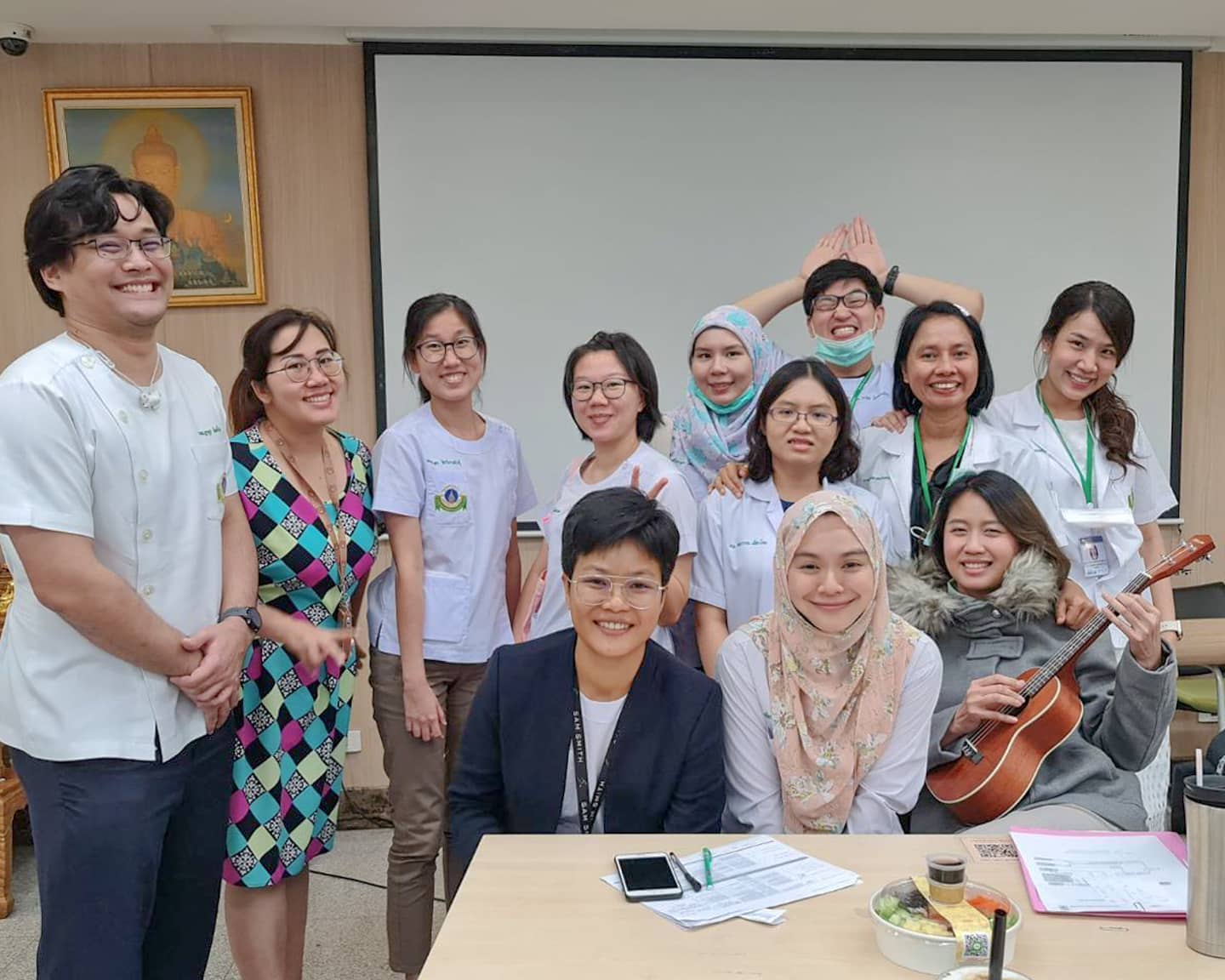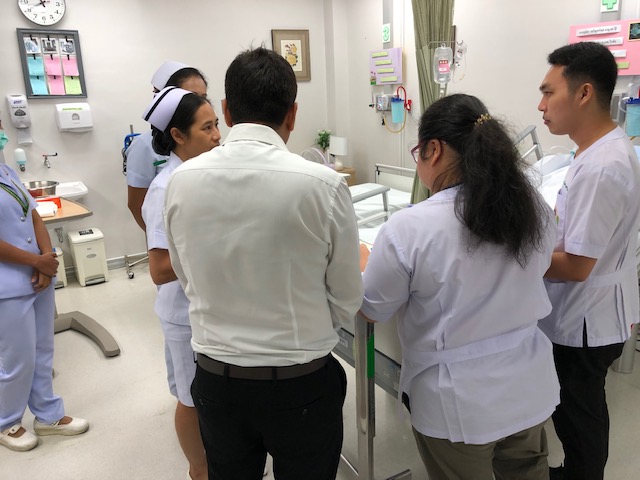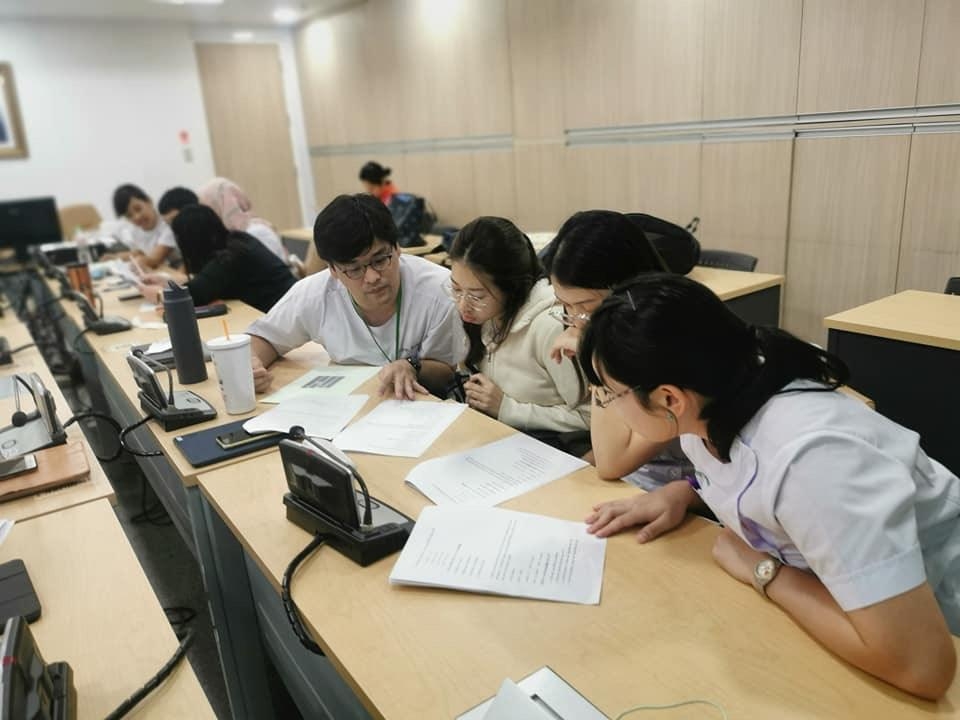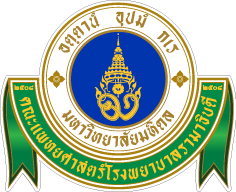The World Health Organization (WHO) defines palliative care as “an approach that improves the quality of life of individuals and their families facing the problems associated with life threatening illness through the prevention and relief of suffering by means of early identification, assessment and treatment of pain and other problems, physical, psychological and spiritual.
Palliative care medicine is often referred as “holistic” approach to care, where carers and family also play a vital role in patients life and they are also offered both emotional and spiritual support.
Our Palliative Care Program
Since 2010, the Faculty of Medicine at Ramathibodi hospital, Mahidol University has been developing palliative care services for Bangkok metropolitan area residents. The project aims to integrate palliative care services into conventional medicine by providing inner-city residents a variety of services, such as inpatient consultation, a palliative care clinic, a palliative care unit, telephone consultation, and home-based palliative care. We are also the second palliative care program in Thailand to meet the Disease Specific Certification Standard in Palliative Care, which was created by the Healthcare Accreditation Institute (Public Organization) or HAI to promote learning and quality improvement in hospitals specializing in specific diseases or systems.


Pictures demonstrate the Ramathibodi Palliative Care Unit.
Approximately 80% of the roughly 500 new patients and their families who participated in this project each year had a cancer diagnosis. The program may be entered by inpatient consultation, outpatient consultation, or emergency department consultation. Patients are then followed by a palliative care team consisting of palliative care physicians, nurses, case managers, and health alliances across the continuum of palliative care service, from the initial consultation until the patient's death or referral to other palliative care programs.

The graph illustrates the number of new palliative care consultations per year from 2010 to 2021.
During non-office hours, the same palliative care team provides emergency department consultation on symptom management, advance care planning, and discharge planning. The team would provide palliative home care based on the needs of individual patients.



The case manager would also coordinate bereavement care if the patient passed away. The department's palliative care team is comprised of four full-time physicians, one part-time physician, two nurses, one psychologist, one music therapist, and one nurse assistant who serves as the project coordinator.
Educational program in palliative care
Care for patients who are dying is as integral to family medicine as efforts to improve patients' quality of life. Over the course of their three-year residency training, the family medicine residents will complete a total of five months in palliative care rotation. The learning experience includes instruction on palliative and hospice care, how to have conversations with families about death and dying, how to identify goals of care and quality-of-life expectations in various care settings as part of an interdisciplinary team, and, when possible, bereavement counseling. Rotations with inpatient and outpatient palliative care teams, home visits, and opportunities to lead family meetings comprise the clinical experience.
After residency training, the department also offers a one-year, full-time postgraduate palliative care training program (the Certificate of Medical Proficiency in Palliative Care in Family Medicine) to enhance the palliative care skills of family physicians and other disciplines. On request, physicians and health allies interested in palliative care can also participate in an elective rotation.
Please contact us Dr.Kittiphon Nagaviroj (kittiphon.nag@mahidol.ac.th) if you require further information.


